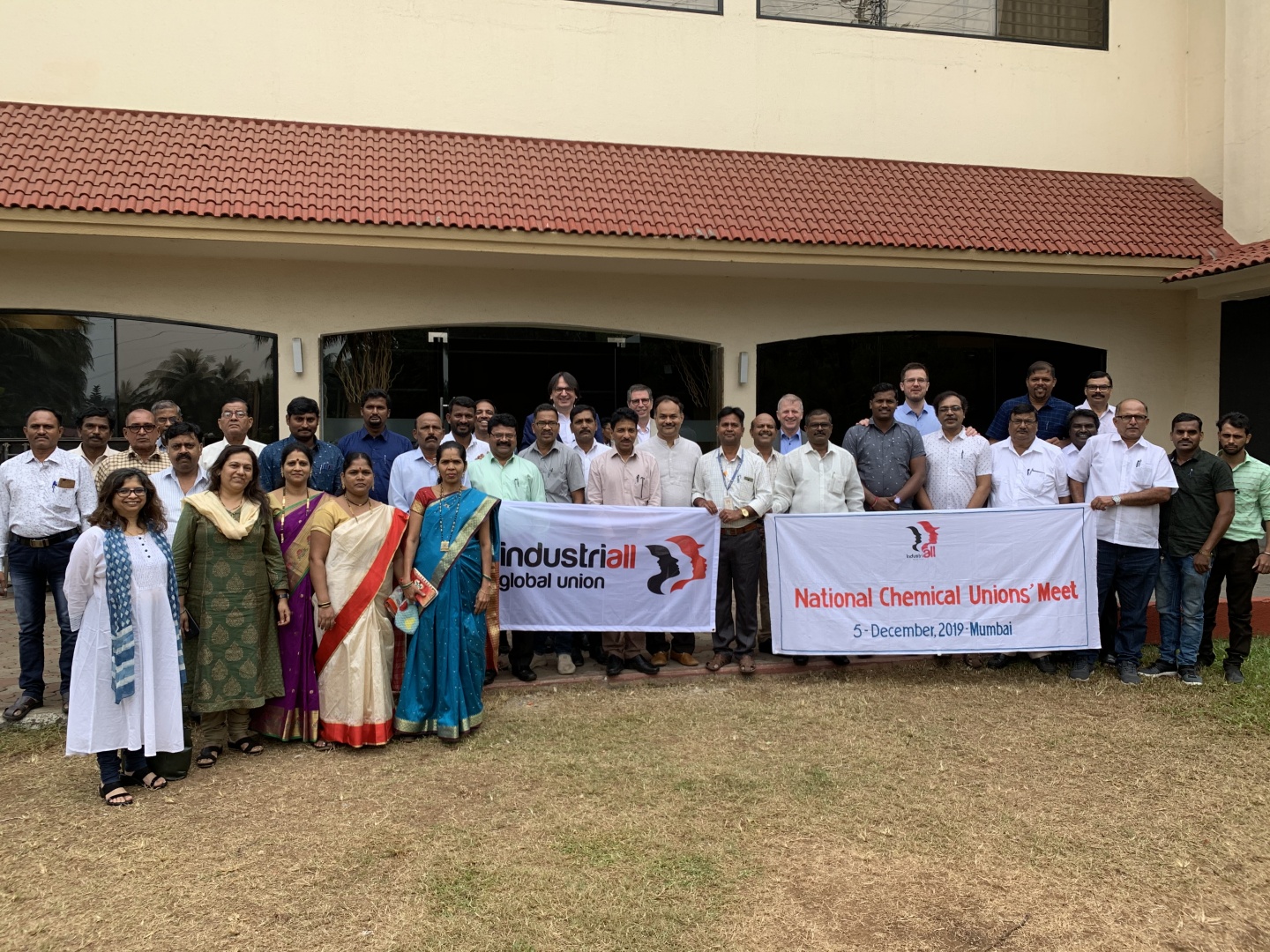Read this article in:
English
21 December, 2019Unions representing workers in the Indian chemicals and pharmaceuticals industry came together as part of an earlier strategy to build a platform for all unions in the sector in India, both affiliates and non-affiliates of IndustriALL Global Union.
To implement this strategy and further increase workers’ power, 30 union leaders from 14 companies came to a national meeting in Mumbai on 5 December.
The Indian trade union movement faces several serious challenges now. There is now systemic abuse of contract workers, with factories employing the majority of its workforce through external contractors. Contract workers are less paid and have less benefits. They are more vulnerable as establishing their own union, or joining one can result in their contract not being renewed. Besides, their precarity in the job is higher because often they are migrant workers.
Plant level union leaders at the meeting reported contract workers in their sites earning 65 euros per month for full-time work, with the permanent staff earning double.
The unjust system is being extended, under the new government “earn and learn” initiative called NEEM (National Employment Enhancement Mission). Employers are now legally required to hire a proportion of its workforce as apprentices, who stay as apprentices for three years. So, something designed to be training program is threatening to become a system whereby apprentices replace permanent workers and are paid drastically less.
IndustriALL’s Indian affiliates are coordinating their opposition to labour law reforms that will further reduce workers’ rights.
IndustriALL Global Union Executive Committee member, Sanjay Vadhavkar expressed to the meeting:
“We face many challenges in our work to organize and represent the Indian working class. Legal costs are high, salaries are low and so membership dues need to be used very carefully. With solidarity and patience, we work to build protections for our members step by step.”
In order for the meeting to learn and analyse the positive case study of industrial relations at Solvay, IndustriALL invited Solvay’s Global Industrial Relations Officer, Patrick Marichal to participate, along with the lead workers’ representative inside Solvay, Albert Kruft. Together with Kemal Özkan, IndustriALL assistant general secretary, theyran a panel discussion about ways to build strong industrial relations.
Patrick Marichal said:
“Our GFA has been signed for 15 years. It is a reference document for all employees in the company. Our management system called Solvay Way has a section on social dialogue, and the first stipulation there is knowledge and application of the IndustriALL GFA. You must develop the confidence to express yourself. If your company can know the reality on the ground, then it can take the right decisions. Don’t be shy, express yourself.”
Albert Kruft:
“It may be impressive what we are doing at Solvay, but it did not fall from heaven. It was a long journey. You need a strong management, but also a strong union organization. Daily dialogue and transparency is key. With dialogue you build trust, and with trust you can do anything. We are all stakeholders.”
The meeting also analyzed companies’ responsibility to share financial information with the union, analyzed health and safety rights and standards, and what content should be in a collective agreement.
Kemal Özkan, stated:
“We come together, learn from each other and coordinate our work. Our objective is to create a sustainable economy, sustainable industry, and sustainable working conditions for our members in India.”
The participants committed to an action plan including organizing members’ meetings to share the knowledge and experience gained at the meeting; to invite contract workers to join union discussions; to contact neighbouring factories’ workers; compile data on health and safety and women workers at each site; consolidate the network and appoint Raghuram as coordinator; share and compile CBAs, wages and other conditions.
IndustriALL director for the chemicals sector, Tom Grinter commented:
“We are determined to build this active group of trade union leaders, year on year, until we have a workers’ platform big enough to take on the huge challenges facing Indian workers in this industry. That work will continue in the spirit of solidarity, or as they say in Hindi: Saathidhaari!”





